Updated October 04, 2023
A Maryland power of attorney lets an individual (the principal) appoint another to represent their best interests as their agent in a variety of circumstances and situations. These situations can range from general financial matters to more specifically defined or limited purposes. It is very important the principal can rely on the person the agent because they will make decisions affecting their property or finances as if they were the principal themself. In addition, it is important the principal review the document they choose carefully to make sure it fits your needs.
By Type (8) |
 Advance Directive – Used to designate a person to represent your health care decisions and interests on your behalf. Advance Directive – Used to designate a person to represent your health care decisions and interests on your behalf.
Download: PDF, MS Word, OpenDocument Signing Requirements (§ 5-602): Two (2) witnesses. |
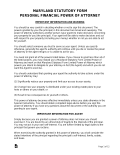 Durable (Statutory) Power of Attorney – Used to appoint an agent to handle your affairs in the event you become incapacitated. Durable (Statutory) Power of Attorney – Used to appoint an agent to handle your affairs in the event you become incapacitated.
Download: PDF, MS Word, OpenDocument Signing Requirements (MD Code, Estates and Trusts, § 17-110): Two (2) witnesses and a notary public. |
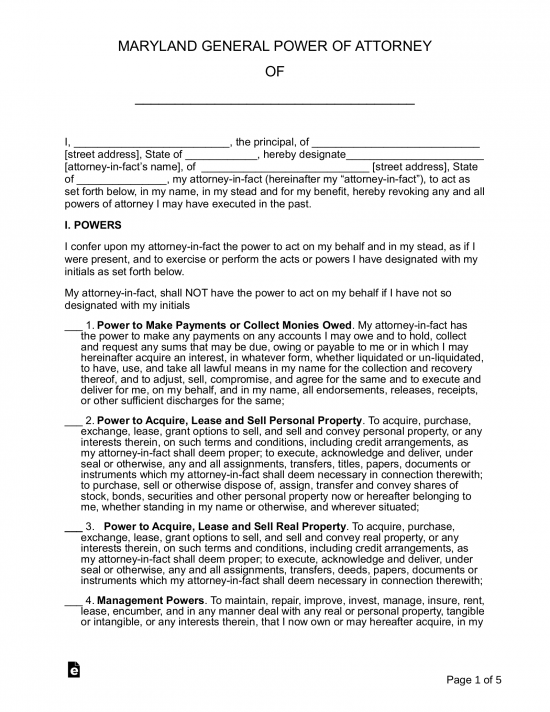 General (Financial) Power of Attorney – For general financial affairs, but it becomes void if the principal becomes incapacitated. It should not be used if you are planning for incapacity. General (Financial) Power of Attorney – For general financial affairs, but it becomes void if the principal becomes incapacitated. It should not be used if you are planning for incapacity.
Download: PDF, MS Word, OpenDocument Signing Requirements (MD Code, Estates and Trusts, §§ 17-110, 17-202): Two (2) witnesses and a notary public. |
 Limited Power of Attorney – For those situations where you have a discrete-time period or transaction where you need someone to stand in your place. Limited Power of Attorney – For those situations where you have a discrete-time period or transaction where you need someone to stand in your place.
Download: PDF, MS Word, OpenDocument Signing Requirements (MD Code, Estates and Trusts, § 17-203): Two (2) witnesses and a notary public. |
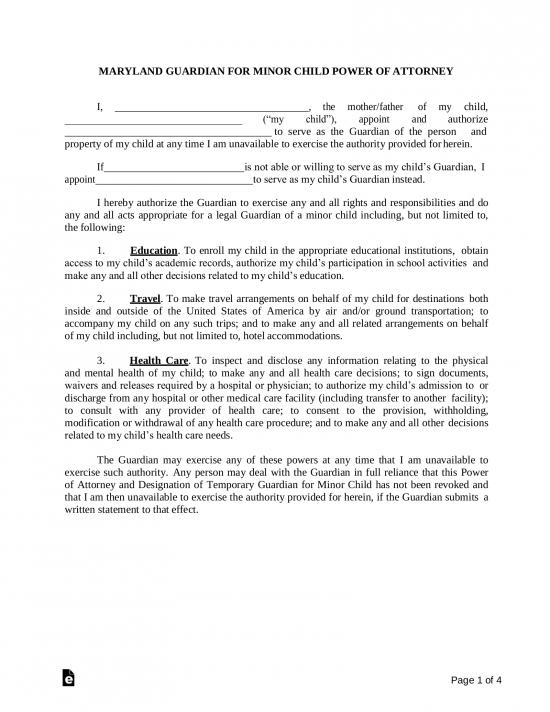 Minor (Child) Power of Attorney – For those situations when you need someone to be in charge of your children if you are away or unavailable. Minor (Child) Power of Attorney – For those situations when you need someone to be in charge of your children if you are away or unavailable.
Download: PDF, MS Word, OpenDocument Signing Requirements (§ 17-202, § 13-708): Two (2) witnesses and a notary public. |
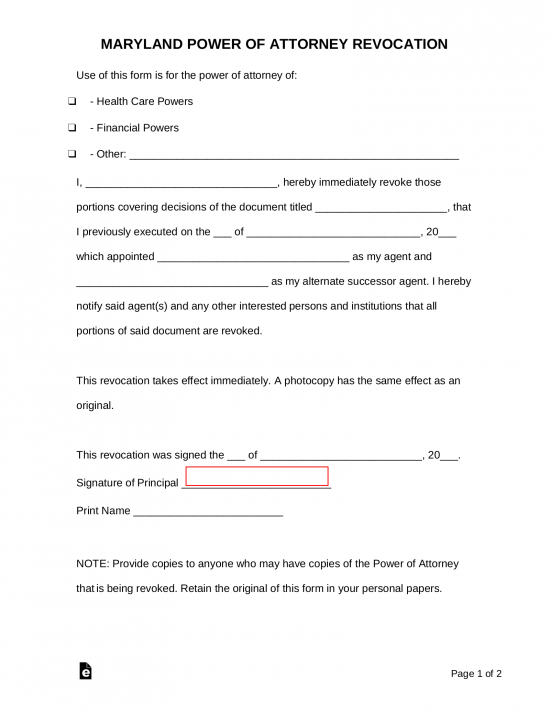 Revocation of Power of Attorney – Used when you want to cancel a POA that you had made previously. The involved parties must be notified in addition to completing this form. Revocation of Power of Attorney – Used when you want to cancel a POA that you had made previously. The involved parties must be notified in addition to completing this form.
Download: PDF, MS Word, OpenDocument Signing Requirements: No laws, but a notary acknowledgment is recommended. |
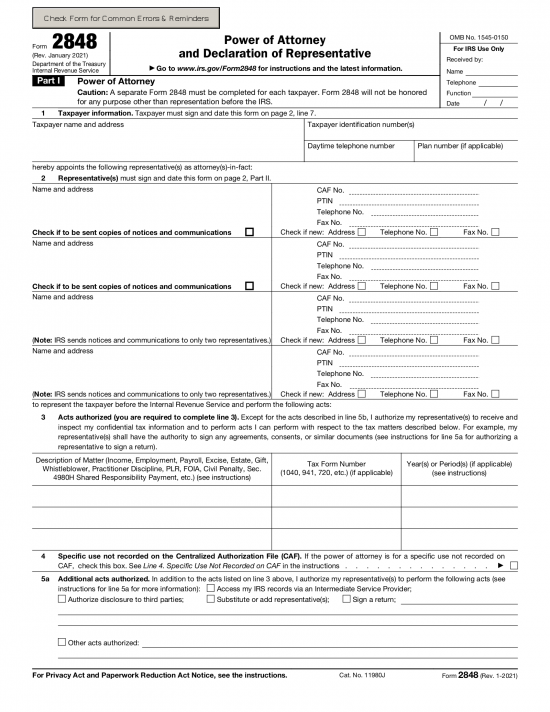 Tax Power of Attorney Form – The State of Maryland recognizes the Federal Tax Form 2848 for all power of attorney tax purposes. Tax Power of Attorney Form – The State of Maryland recognizes the Federal Tax Form 2848 for all power of attorney tax purposes.
Download: PDF Signing Requirements: The principal only. |
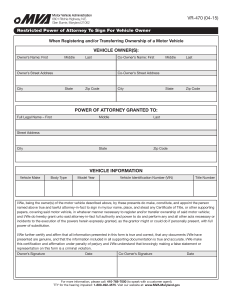 Vehicle Power of Attorney – Allows you to appoint someone to handle your vehicle titling and registration transactions with the Maryland Motor Vehicle Administration. Vehicle Power of Attorney – Allows you to appoint someone to handle your vehicle titling and registration transactions with the Maryland Motor Vehicle Administration.
Download: PDF Signing Requirements: The principal only. |
